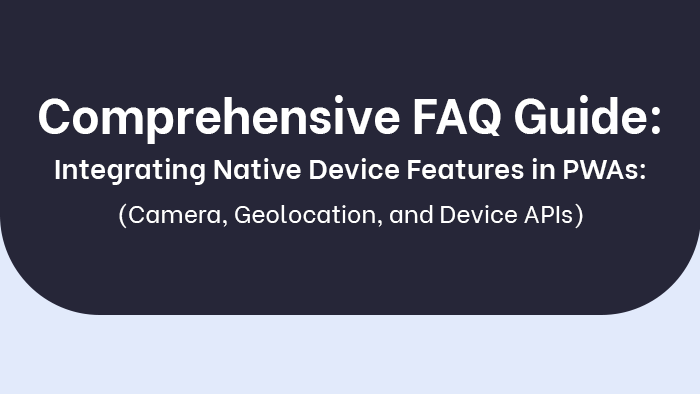
Selecting the right technology partner can make the difference between a highly successful startup, and a frustrating or even totally failed startup. If you want to start a company but you don’t have technical skills, you may be in a position where you need to look for a tech partner for your startup. Many entrepreneurs have started a multi-million dollar tech companies without coding skills.
Successful startups are not just about the great ideas but an implementation of the idea to the market ready product. If a flawless execution leverages the latest technology trends, then you are sure of having a disruptive product. That’s where having the right technology partner makes all the difference.
Do you have any questions about how to select the best software development company and take your existing business or startup to the next level? In this article, you will explore how to make the best decision.
Values to look for in your next technology partner to fuel growth
STRONG BUSINESS ACUMEN
Great technology partners have years of experience across all industries in helping clients achieve their business goals. They understand that their job is to reduce costs and support greater business agility by modernizing their IT applications and infrastructure. Your partner should have a broad awareness of your industry domain, your target market and how their domain expertise can help your business grow.
One of the important points is to know whether the technology partner understands startups or not. Look out for a company which has dedicatedly worked for startups and has built numerous products in the past. In short, Experience matters!
EXPERIENCE
Often people choose technology partners based on price rather than experience. In reality, the experience is more important as experts are aware of how technologies interact with the existing systems and can provide a more practical plan for your company.
To measure the company’s experience you can do a little research about who their previous customers are and what kind of projects they have accomplished. Can they provide you with references and clear examples of their completed projects which are similar to yours? If you look them up online, what do you find? These credentials will help you make an informed analysis of their experience and expertise level.
Understand the complexity of platforms they have built from scratch, hard problems they have solved, innovations they have made, any development accelerators/reusable components they have built which can speed up your development effort. In addition, understand the development process they follow.
ABILITY TO DESIGN SOLUTION IN BUDGE
A good technology partner works with you to define the best strategy to place your product in the market in time and in your budget. They have the knowledge and experience of how to do things quickly, what to do and what not to do. Moreover, any good technology partner has worked with many startups and helped them to define the MVP and launch to market. Tech partner understands that is imperative to keep the budget in mind when building a solution for startup or small business as they generally have a short budget. That’s why breaking the design down into manageable chunks, a client can go live with the MVP (Minimum viable product) that fits the budget. As the product and user base grows, the solution can later be scaled.
CONSIDER SPEED AND DEADLINES
You’re looking for a technology partner that can quickly mix with your team and get things done rapidly. When interviewing a company’s past and current clients, inquire if the company was quick to develop the project and solve problems and whether they promptly responded to change requests. Ask what the original timeline was and if the company stuck to it. If there were delays, what was the cause and how they put it back on track? While speed on a project isn’t essential, it can generally demonstrate their ability to read and respond to changes.
TRANSPARENCY
In any partnership, trust is the key. Tech ability is not the first criteria and it should not be. Keep in mind that starting a partnership together is exactly like marriage, if you do not build it upon a strong foundation of trust and understanding, it’ll fall apart at the first headwind that comes your way.
When you choose a tech partner it’s crucial to have an open line of conversation with them. An open line of conversation includes honesty about goals, resources and time management and deadlines. It’s mission-critical for a tech partner to keep their clients updated using regular status reports. One way to manage this is: technology partners should have a simple, straightforward roadmap of project accomplishments so that non-technical client can easily decipher the step-by-step implementation and milestones of each stage coupled with the respective time period.
SUPPORT
In today’s ongoing business environment, application failure or unexpected downtime can frustrate end users and devastate your bottom line. The advantage of working with an IT solutions partner is that they can provide ongoing support after developing your product. This includes maintenance to ensure that operations are running smoothly and providing analytics that helps you to make a strategic decision. An exceptional partner understands that the systems need to keep pace with your business as it evolves.
Technologies such as servers, web browsers, mobile devices, etc keep on changing. Therefore, the software and apps that run on these platforms should also change. Constant software support makes sure that your systems run efficiently and small bugs are fixed quickly for maintaining a good user experience.
Support services are usually an additional option to your partnership agreement, general warranties and implementation support should be included in the basic project package wherever applicable.
Selecting a technology partner is really about hiring a company that’s going to do a better job on your product than you could do yourself or trying to do by hiring onsite people by yourself. That’s the vision and promise of technology partners. Once you shift your mindset to see the whole global marketplace as your employee field, you’re going to find some pretty mind-blowing companies.
It takes some real work to find companies that have an honest passion for the art of software development. But they do exist. And when you find them, your business will succeed.


